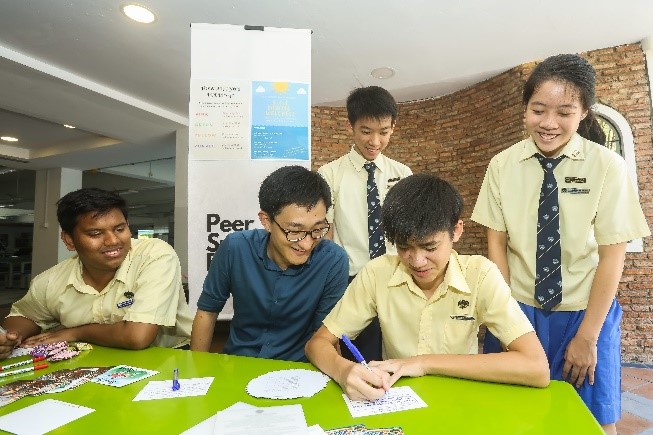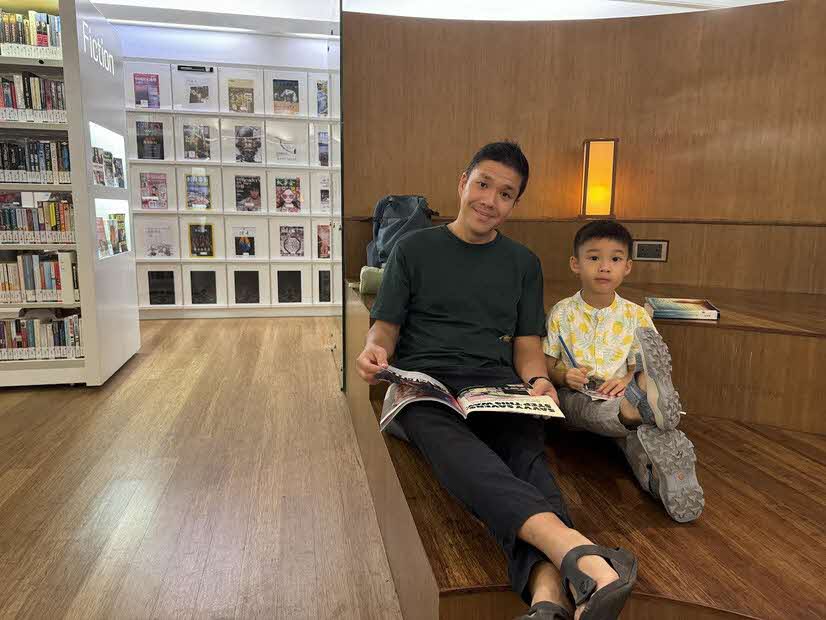Dr Chia Hui Teng, Singapore Polytechnic, President’s Award for Teachers 2020
Is there really a home-ground advantage in sports? Do educated girls have trouble finding husbands?
Instead of simply accepting such apocryphal statements, Singapore Polytechnic (SP) students are learning to find the truth for themselves by gathering and crunching data.
Chia Hui Teng, an Academic Mentor from the School of Mathematics and Science, SP, said: “Rather than just [mathematical] content, we want to teach students how to think for themselves. We begin with a hypothesis or a belief-based claim in a certain context and ask a good, data-based question. Once you ask the question – you know what data you need to collect to answer that question.”
Currently some two-thirds of the SP student body take a module in Statistics, during which they are trained in a data-based problem-solving process – formulating questions, gathering and analysing data, interpreting results. There are plans to have more students take up the module.
It’s about asking the right questions
Hui Teng explained that as an Academic Mentor, she helps to develop, research and champion innovative pedagogy among the staff, for the teaching and learning in her school.
In 2013, the School of Mathematics and Science, realised that data literacy skills would be a vital skillset in Singapore’s burgeoning digital economy. She was tasked to lead a schoolwide Statistical Literacy Project to study (and implement) how more of their students could be armed with these skills.
“We started work to see how we can teach our diploma students to be more critical when they deal with data and not to accept things at face value.”
“Previously statistics was taught as part of mathematics, so students are introduced to concepts like average, mean, median, mode etc. We wanted to change that because we wanted students to know that statistics is a useful tool for them to test out claims,” said Hui Teng.
From cold data to meaningful insights
In the pilot study, the team trained groups of students – and found the students were excitedly taking things outside the box of “tools” they were given.
“What was extremely interesting was that the students did more than what was required,” said Hui Teng.
Take a football-obsessed student who crunched data from weekly English Premier League match results. He discovered that teams in the league do enjoy home advantage. But he took it a step further, and found that home advantage is more significant in team sports and less so for individual sports.
“Explorations like this wouldn’t have been possible if we had taught statistics in the traditional way,” stressed Hui Teng. The Statistical Literacy Project teaches students how to formulate questions, use large, real-life data sets, and analyse them using statistical software to answer those questions.
“The capability to formulate good questions and draw insights from statistical analyses are important skills for our graduates in data-driven workplaces…when they have to use data to help make sense of the situation for problem solving and decision making.”
From the pilot group, the scaling up of the statistics programme has taken place from year to year as planned, and has now reached about two-thirds of the student population in SP. Hui Teng was pleased to receive feedback that students were applying their data skills to other (non-Maths) modules as well.
A communications lecturer shared an incident in which a student of hers refuted a claim that was being discussed by a simple polling via a social media channel. It surprised the lecturer because usually students would draw on their own beliefs and experiences. This unprompted act by the student has demonstrated that he believed data could lend support to answer claims.
Another example is by a group of students who crafted surveys to answer the question in their course work “Youth these days do not spend enough time with their families, true or false?” Said Hui Teng: “Questions like that invite people to debate and give their opinion…Students can actually find another source for validating a claim.”
You are a part of a larger whole
Hui Teng adds: “While we equip students with technical skills for the workforce I think it is also very important as an educator to help these young adults get their internal moral compass correct.”
A recent class allowed Hui Teng to impress on her students a value she holds dear – teamwork.
Activities in her class are purposefully designed to require teamwork, or what she calls “teamness”. For example, they will have to work in a group to solve a quiz and have to discuss the question as a team to get the answer. If it is wrong, the whole team gets no marks. If it is right, the whole team gets equal credit.
“So you really have to talk to each other, poke holes in each other’s hypothesis before you arrive at the answer…If you don’t work well in teams, you are not going to succeed even if you have a lot of knowledge.”
She shared an incident that happened during a project presentation, where a team of four students presented the best storyboard in her class. However, three of the students had sidelined one of the team members, interrupted her presentation and even excluded her name from the project.
Hui Teng stopped the team midway through the presentation and gave the final semester project a conditional fail, even though this group presented one of the best storyboards for the semester.
The three students protested and one even cried – but Hui Teng firmly told them, “It is not in our culture to leave the weak behind. We do not show strength by trampling on the weak; we show strength by including everybody.”
Hui Teng counselled the team, posed questions to help the team analysed and reflected on the strength, weaknesses, effort and determination of the different members. The team was given another chance to show how they could work together to make the work a united team effort. They overcame their issues and worked hard to earn the deserving merits a week later.
The inspiration behind Hui Teng’s action above was borne out of an incident she observed as a young educator. “Around 10 years ago, I witnessed an experienced lecturer face a line of students complaining to him that a particular student was a ‘free rider’. …. First, he…validated their emotions [of anger] and then he went on to make the statement above.”
“As a young teacher sitting at the back of a darkened lecture theatre, it was very powerful to witness that. As I became a more experienced teacher, it became very natural to me to help younger staff… This is why I am attracted to mentoring. I [want to] help teachers to guide their students in learning better. One way is through the use of learning analytics visualizations.”
Data-guided teaching mission
The demand for data-based training continues to grow after the SLP is launched. Together with her school colleagues, Hui Teng consulted with an industry player in visual analytics to develop a module for SP fulltime diploma students. “Visualization skills at the workplace gained much prominence during this period.”
Recently, together with the team from SP’s Department of Educational Development, Hui Teng piloted a research tool aimed at developing a framework for lecturers’ learning analytics competencies. In this pilot study, the participants were shown the same prototype dashboard with class attendance, Cumulative Grade Point Average and assessment scores for a group of students. Interestingly, they shared different insights of the students’ learning and suggested different teaching strategies and interventions.
“What we really like about this project is that it provokes thinking that you don’t really have one-size-fits-all answers. As a teacher, with data given to you before you step into the classroom, you are able to better prepare to meet students’ needs.” The pilot study shows potential for the development of a learning analytics competency framework for Polytechnic educators.
Declared Hui Teng, “I am really excited about this. Lecturers can use data like this to help them in their work.”



![[For Magdeline] ChiaHT (SP)](https://www.schoolbag.edu.sg/wp-content/uploads/2024/01/for-magdeline-chiaht-(sp).jpg)
.jpg)

